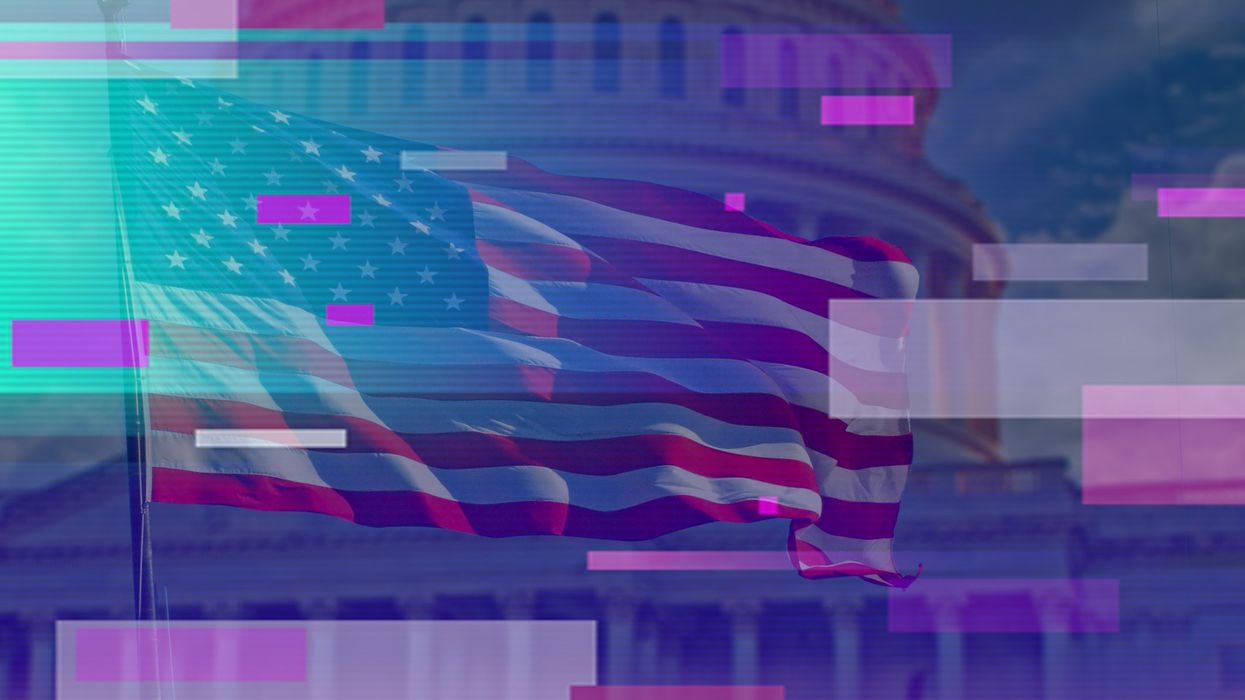If the means justify the ends, we’d still be operating under the Articles of Confederation. The Founders understood that the means—the governmental structure itself—must always serve the ends of liberty and prosperity. When the means no longer served those ends, they experimented with yet another design for their government—they did expect it to be the last.
The age of AI warrants asking if the means still further the ends—specifically, individual liberty and collective prosperity. Both of those goals were top of mind for early Americans. They demanded the Bill of Rights to protect the former, and they identified the latter—namely, the general welfare—as the animating purpose for the government. Both of those goals are being challenged by constitutional doctrines that do not align with AI development or even undermine it. A full review of those doctrines could fill a book (and perhaps one day it will). For now, however, I’m just going to raise two.
The first is the extraterritoriality principle. You’ve likely never heard of it, but it’s a core part of our federal system: one state can’t govern another; its legal authority ends at its borders. States across the ideological spectrum are weighing laws that would significantly alter the behaviors and capabilities of frontier models. While well-intentioned, many of these laws threaten to project legislation (and values) from one state into another. Muddled Supreme Court case law on this topic means that we’re unsure how exactly extraterritoriality concerns map on to the rush to regulate AI—that uncertainty is a problem.
Unclear laws hinder innovation, which is a driver of the general welfare. As things stand, the absence of a bright line as to when state authority to regulate AI begins and ends has invited state legislatures around the country to seemingly compete on which can devise the most comprehensive bill. If and when these bills find their way into law, you can bet your bottom dollar that litigation will follow.
Courts are unlikely to identify the aforementioned line. In the short run, as indicated by conflicting judicial decisions around the fair use doctrine and AI training data, they will likely develop distinct and perhaps even contradictory tests. The long run isn’t even worth considering. The regulatory uncertainty that results from even a few laws with extraterritorial effects may keep that would-be innovator from going all-in on their new idea or give pause to an investor thinking about doubling down on a startup. Those small decisions add up. The aggregate is lost innovation and, by extension, lost prosperity.
What’s more, one state effectively imposing its views on others runs afoul of individual liberty concerns. Extraterritoriality is one part of the Constitution’s call for horizontal federalism, which demands equality among the states and prohibits them from discriminating against non-residents, in most cases. When this key structural element is eroded, it diminishes one of the main ways the Founders sought to protect Americans from once again living under the thumb of a foreign power.
The second is the right to privacy. While you won’t find such a right in the Constitution. It has instead been discovered in the “penumbra” of other provisions. This general, vague right has given rise to a broader set of privacy laws and norms that generally equate privacy with restraints on data sharing. At a high-level, this approach to privacy results in siloed datasets that may contain data in different forms and at various levels of detail. In many contexts, this furthers individual liberty by reducing the odds of bad actors gaining access to sensitive information. Now, however, the aggregation of vast troves of high-quality data carries the potential to develop incredibly sophisticated AI tools. Without such data, then some of the most promising uses of AI, such as in medicine and education, may never come about. Concern for the general welfare, then, puts significant strain on an approach to privacy that decreases access to data.
Reexamining and clarifying these doctrines is overdue. It’s also just a fraction of the work that needs to be done to ensure that individual liberty and the general welfare are pursued and realized in this turbulent period.
Kevin Frazier is an AI Innovation and Law Fellow at Texas Law and Author of the Appleseed AI substack.




















